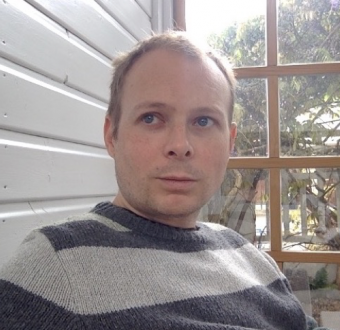
Olivier MORIN
Researcher
Researcher
Cognitive Studies
cognition, cultural transmission, cultural evolution, writing, communication, digital humanities
CNRS
Published on
13 July 2021
, updated on
10 December 2021
Image

PJ1, bureau PJ011
29, rue d'Ulm 75230 Paris cedex 05
01 44 322688
I am a researcher at the CNRS, and a research group leader at the Max Planck Institute for the Science of Human History in Jena (Germany).
Field of research
I study cultural transmission, the way traditions are passed on from person to person. This key mechanism in human history and evolution bridges three distinct levels: individual human cognition, interactions between individuals, and population-level processes.
To span all these levels, my work combines a broad range of methods, from lab experiment to quantitative cultural history. In my book How Traditions Live and Die (2016), I developed a theory of cultural transmission which argues that it rests primarily on ostensive communication, as opposed to imitation. I also defended a view of cultural evolutionary dynamics where continuous, non-random transformations matter more to cultural change than selectionist dynamics, leading to debates on the nature and implications of cultural-evolutionary models.
Since 2016, I have focused my research on one particular tool for cultural transmission: graphic codes. Writing systems, pictographs, emblems, brands and seal markings are all graphic codes: they carry information by means of enduring images with standardised meanings. I have studied the visual characteristics of letters and emblems from a perspective that combines cognitive science with cultural evolution. I seek to understand how the shape of letters and other symbols maximises the information they can carry while adapting to the constraints of human visual cognition.
Publications
- Kelly, P., Winters, J., Miton, H., & Morin, O. (accepted). The predictable evolution of letter shapes: An emergent script of West Africa recapitulates historical change in writing systems. Current Anthropology.
- Morin, O. (2013). How portraits turned their eyes upon us: Visual preferences and demographic change in cultural evolution. Evolution and Human Behavior, 34, 222–229.
- Morin, O., & Acerbi, A. (2017). Birth of the cool: A two-centuries decline in emotional expression in Anglophone fiction. Cognition and Emotion, 31(8), 1663–1675.
- Morin, O., Acerbi, A., & Sobchuk, O. (2019). Why people die in novels: Testing the ordeal simulation hypothesis. Palgrave Communications, 5(1), 2.
- Morin, O., & Miton, H. (2018). Detecting wholesale copying in cultural evolution. Evolution & Human Behavior, 39(4), 392–401.
- Pavlek, B., Winters, J., & Morin, O. (2019). Ancient coin designs encoded increasing amounts of economic information over centuries. Journal of Anthropological Archaeology, 56, 101103.
- Pavlek, B., Winters, J., & Morin, O. (2021). Standards and quantification of coin iconography: Possibilities and challenges. Digital Scholarship in the Humanities, fqab030.